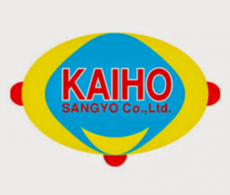Kaiho Sangyo
Kaiho Sangyo
Establishing an eco-friendly auto recycling value chain and training local businesses in Brazil.
BCTA MEMBERSHIP STATUS
Active
SECTOR
Transport & Logistics
HEADQUARTERS
Japan
REGION OF INITIATIVE
Latin America & Caribbean
SDG CONTRIBUTION
RELATED NEWS
Kaiho Sangyo, a Japanese automobile recycling company, joined Business Call to Action (BCtA) in December 2017 with a pledge to establish an eco-friendly auto recycling value chain in Brazil with the capacity to recycle 100,000 end-of-life vehicles per year by 2022. As part of this commitment, it will develop the skills of 15,000 recycling engineers and expand 20 existing recycling businesses, including local garages and repair shops.
With approximately 1.2 billion cars running in the world – a number which will only increase in the future – the potential environmental impacts of disused, broken or old vehicles in terms of non-biodegradable waste are significant. According to Kaiho Sangyo, end of life vehicles (ELVs) generate millions of tonnes of waste, including hazardous substances which should be recycled in environmentally friendly ways. However, many countries do not have sufficient waste management and recycling policies in place to address this environmental challenge.
Rather than going to landfill, ELVs contain many reusable spare parts and recyclable materials, such as steel, copper and aluminium. The recovered ferrous metals can be recycled to produce new steel, while other parts can be repaired and reused.
Under its BCtA commitment, Kaiho Sangyo is working to build a thriving vehicle recycling value chain in Sao Paulo and Minas Gerais in Brazil, consisting of micro, small and medium enterprises such as local garages and repair shop (SMEs), recycling engineers, recycling technicians and local collectors of discarded materials and auto parts. Many of the individuals along the value chain are living at the bottom of the economic pyramid, and participating in this initiative will help to lift them out of poverty.
This initiative, implemented in partnership with the Federal Center of Technological Education of Minas Gerais (Cefet-MG) and the Japan International Cooperation Agency (JICA), not only contributes to a reduction of environmental impact due to car waste, but also promotes skills development, entrepreneurship and employment by supporting the growth of existing car recycling businesses and training 15,000 recycling engineers on new and efficient recycling processes, lifting thousands of people and their families out of poverty.





